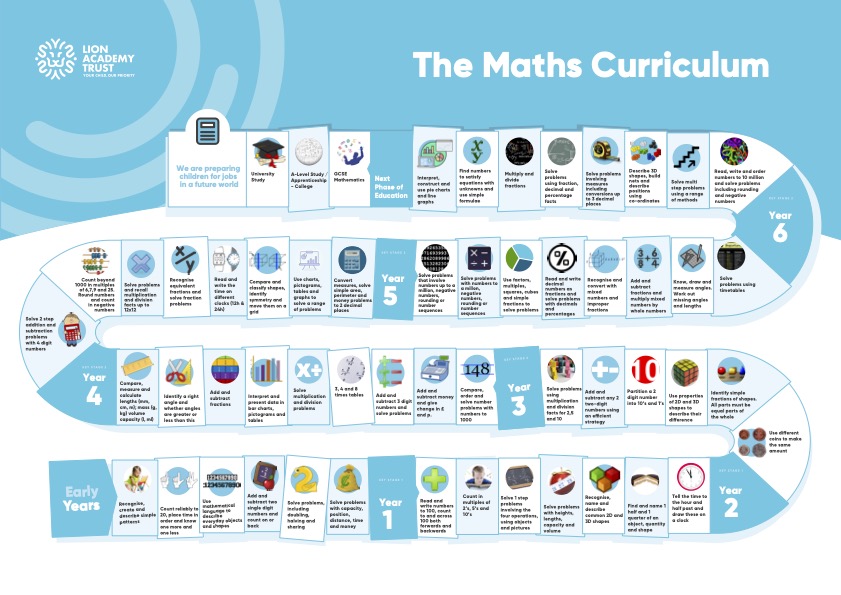MATHS

How do we teach Maths at MASON MOOR?
In order for children to be competent mathematicians, they first need to assimilate what they already know to work out what they do not know. At Mason Moor, we advocate the CPA (Concrete > Pictorial > Abstract) model to ensure that children develop a deeper understanding of number, patterns and concepts - building always on existing knowledge.
Within lessons, teacher's follow a sequential approach to delivery of concepts and ideas. This starts with Fluency within the skill being taught, before Practise of the new skill independently, finally challenging themselves with Application in context. This helps teachers to accurately assess what the child knows and what they remember.
Further, in Maths, children are encouraged to explain their reasoning, to question things they don't understand or agree with, and to present their views in a structured/logical way.
Early Maths at MASON MOOR
As soon as children begin in Nursery, we are explicitly teaching Mathematics. Number skills are evident throughout the setting - whether in the role play area, outside or in a focus group.
You can also help early maths at home! Talk to your child, use the language of numbers, shape, size, position, time and money as you go about your daily life.
Help them to:
-
begin to recognise number words and symbols and to understand how to use them to count
-
understand and use comparing words like “less”, “more”, “smaller”, ”heavier”
-
put things in order and use words like “first”, “second”, “before”, “next”
-
learn words of position like “left”, “right”, “top”, “below” “in front”
-
make patterns and talk about how they do it
Component Planning for Mathematics
We have deliberately developed plans that interweave content in a linear and progressive way throughout your child's time with us. Instead of an 'off the shelf' package of maths - we believe that children need concepts to be revisited regularly to support the retention of knowledge, skills and understanding over time.
What does this mean?
So, instead of 'blocked units' that consume 12 weeks of the timetable teaching 'fractions' - we build knowledge little and often. For example: in our component planning for Year 1: we revisit Place Value & Number throughout the year. You'll notice that each term, children are then expected to know and remember more.

